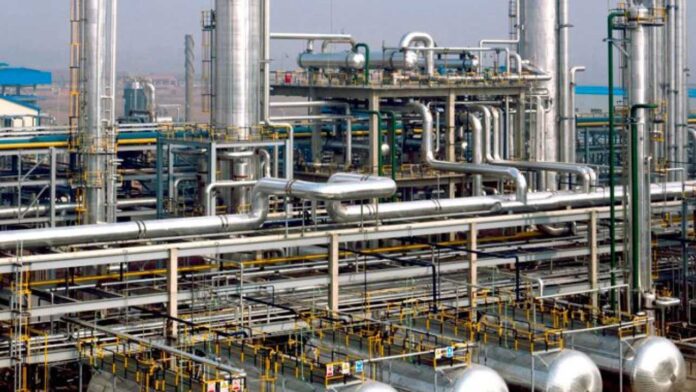IPMAN rejects refineries’ sale, says its best for Nigeria to have its own
By Jeph Ajobaju, Chief Copy Editor
Independent Petroleum Marketers Association of Nigeria (IPMAN) National Controller, Mike Osatuyi, says it is best for the country to have its own refineries as against selling them off as being canvassed by Presidential Fiscal Policy and Tax Reforms Committee Chairman, Taiwo Oyedele.
“Nigerians would say if only our refineries were working, then we’ll be fine. Nothing can be farther from the truth than that. In fact, Nigerians should come together and say please make sure that our refineries don’t work. We should sell them,” Oyedele said at an independence anniversary event at The Platform in Lagos.
IPMAN is against selling off the refines but other stakeholders who have expressed support for Oyedele’s view include Nigeria Employers Consultative Association (NECA) and Nigeria Economic Summit Group (NESG).
“The National Assembly said we have spent over N10 trillion maintaining our refineries even when they have not produced anything,” Oyedele stressed at the event tagged ‘Africa Rising Continent – Nigeria’s Strategic Role’.
“If Nigerian refineries process crude oil, unless we deal with our inefficiency, one litre of petrol will be the most expensive in the world. You would have succeeded in replacing the subsidy at the pump with subsidy of the refineries.
“What is our vision? What is the Nigerian dream? Even I had to Google it, and when I did, I really couldn’t find anything.
“The closest thing I found was in the recent document called Agenda 2050, which was developed by the immediate past administration. It has the vision, the mission, and it has objectives.
“I know most people remember monetary policies and if not for anything, the recent naira redesign reminded all of us how bad things can get when you get just one policy wrong.
“Sometimes it’s not just about the economy, activities, values and financial losses but about lives which are irreplaceable.”
__________________________________________________________________
Related articles:
Reps discover Abuja spent N11tr on refineries without output
NNPC canvasses for $32.61b to revamp refineries, pipeline infrastructure
Nigerian elite steal $46.16b crude oil in 7 years
__________________________________________________________________
Policies to help reform the economy
Oyedele listed industrial policy, environmental, and energy policies, among eight policies that could help reform the economy, per reporting by The PUNCH.
“When the fuel subsidy was removed, the pump price of PMS [petrol] went up by 200 per cent. Do you know what happened? Traffic in Lagos disappeared. One of the reasons it disappeared was because a lot of people could no longer maintain buying fuel to be on the road and they parked their cars.
“Do you think those are the upper-class people? No. The upper-class people will just complain briefly and they’ll pay and still move on. They drove exactly as they drove before and after the removal.
“The lower and middle-class people who had [imported] Tokunbo used cars – those cars break down regularly, and they visit the vulcanisers regularly and the mechanic.
“Since those people are parking their vehicles at home, the vulcaniser is not finding jobs to do; so is the mechanic. It’s not just the vulcaniser, the apprentices and the family they support – life has become impossible, but we all agree it’s a necessary policy.
“But we need to react and respond in a way that is robust enough so we can take some of those pains off our people.”
The reactions from stakeholders, as collated by The PUNCH, are produced below:
Mike Osatuyi (IPMAN National Controller)
“The government that wants the refineries to work knows what they are doing. Having our own refineries guarantees energy security and would also create more jobs,” he argued.
“You can’t control what you don’t own. So, it is good for us to have our own. The cost of importing petrol is now very high. I think government is moving in the right direction by making the refineries work very soon.”
Wale Oyerinde (NECA Director General)
“That has been our position, we have refineries that have not been running profitably for years now, it doesn’t make sense to keep pumping money into something we can’t handle.
“The government should transparently sell it off to Nigerians and let an average Nigerian who wants to buy into it do that and the government keeps a limited share of it. It has not worked before so why are we keeping it? I don’t know why Nigerians are sentimental about it.
“It should be sold to individuals who can run it as a business and then the government will play the role of a regulator rather than continue pumping money into it. It has been our position, the government should transparently sell it off to Nigerians or private individuals or experts that can run it.”
Niyi Yusuf (NESG Chairman)
“The private sector has proven over time its ability to efficiently optimise assets for the benefits of all stakeholders.
“We have seen this in banking, telecoms, broadcasting, entertainment and other sectors where public assets have been transparently handed over to reputable private managers.
“Underperforming assets such as refineries should be privatised to allow private sector bring in needed capital, technology, technical capacity and management knowhow so these assets can stop draining public budget and consumers can start to benefit from their products and services.
“More than half of our population have not witnessed our refineries work at optimal capacity. It’s about time we tried new strategy and privatisation is a proven model.”














